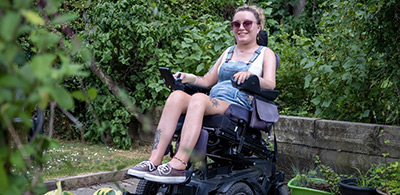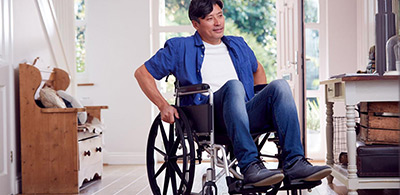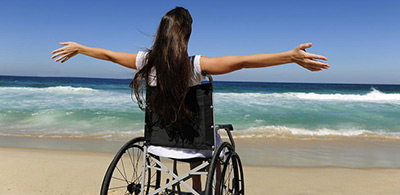What is a Spinal Cord Injury?
A Spinal Cord Injury (SCI) can occur at any time in a person's life and can substantially affect their functional capacity.
Find out more about this type of disability and how you can support it.
What support can I receive with a Spinal Cord Injury?
An NDIS plan can include support in the home to assist you with day-to-day tasks, or in the community to help you attend appointments, grocery shopping, socialise - the list goes on!
Accessing the NDIS
Spinal Cord Injuries will usually provide access to the NDIS if the impairment is permanent and the person's functional capacity or ability to undertake daily activities is severely affected.
Housing and Support Tips
Living with a spinal cord injury may mean you require support at home. The NDIS can fund a wide range of support to meet your needs, in your current home or in a new home environment setting if this is something you need.
How to Get Funding for Supported Independent Living (SIL)
To be eligible for funding for support, you must meet the NDIS eligibility criteria.
This resource focuses on Supported Independent Living (SIL) and the eligibility requirements for SIL.
Assistive Technology in the NDIS
"What assistive technology can I use my NDIS funds for to help with my spinal cord injury?"
We asked our resident OT to tell us what type of equipment she regularly prescribes to assist NDIS Participants with a spinal cord injury.
Finding Supported Independent Living (SIL)
SIL involves the funding for support provided to you in the home environment. It does NOT include funding for the accommodation where you live.
You must have a clear idea of what your current support needs are to ensure the SIL provider can meet your needs for now, and over the longer term.
Living Alone or With Others?
SIL can be provided to you in a sole-occupancy setting. This means you can live alone and access a SIL service.
Concierge support is an alternative model of care for people with spinal cord injury to receive their SIL support.
Specialist Disability Accommodation (SDA)
SDA is funded by the NDIS for participants who require their physical home environment to cater to their needs related to their disability.
You can greatly benefit from SDA if you have a Spinal Cord Injury, as a property can include accessible and adaptive features to accommodate your needs.
Short Term Accommodation (STA) / Respite
Short Term Accommodation is funding allocated to an NDIS participant to live out of home for a short period of time. It is often described as respite.
This can provide a break for the participant from their day-to-day activities and responsibilities and give their family and carers a break from their care-giving role.
What is the difference between SDA and SIL in the NDIS?
Supported Independent Living (SIL) and Specialist Disability Accommodation (SDA) are 2 NDIS-funded supports that are often confused.
This resource helps you understand their difference and how each is funded.











